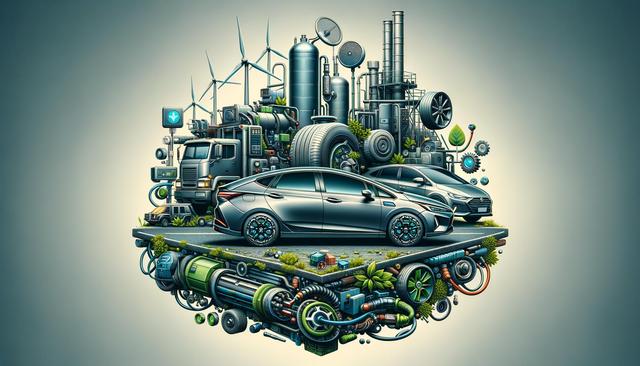Hybrid Cars That Help You Save on Fuel
Hybrid cars offer an efficient alternative for drivers looking to reduce fuel consumption without sacrificing performance.

Understanding Hybrid Technology
Hybrid cars are designed to combine the benefits of a traditional internal combustion engine with an electric motor, resulting in improved fuel efficiency and reduced emissions. These vehicles can switch between power sources or use both simultaneously, depending on driving conditions. This dual-function system allows hybrids to maximize energy use and minimize fuel consumption, particularly in stop-and-go traffic or during city driving. While the technology behind hybrid vehicles has evolved significantly over the years, the core principle remains focused on efficiency and sustainability.
The electric motor in a hybrid car is powered by a battery that recharges through regenerative braking and, in some cases, by the engine itself. This means that drivers do not need to plug in their vehicles, making hybrids more convenient for those who are not ready to transition to full electric cars. The result is a system that reduces reliance on gasoline while maintaining the range and flexibility of a conventional vehicle.
Fuel Efficiency Benefits
One of the most compelling reasons to consider a hybrid car is its fuel efficiency. These vehicles typically consume significantly less fuel than their gasoline-only counterparts. This can lead to noticeable savings at the pump, particularly for those who drive frequently or have long commutes. The efficiency gains come from several key factors:
- Electric motor assists during acceleration, reducing the load on the engine
- Engine shuts off when idling, conserving fuel in traffic
- Regenerative braking recaptures energy otherwise lost during deceleration
Depending on the model and driving habits, hybrid cars can offer anywhere from 20% to over 50% better fuel economy compared to similar non-hybrid vehicles. This not only results in financial savings but also reduces the vehicle’s overall environmental footprint.
Driving Experience and Performance
Hybrid vehicles have come a long way in terms of performance. Earlier models were often criticized for sluggish acceleration or lackluster driving dynamics, but modern hybrids offer a much more refined experience. Thanks to advancements in electric motor technology and battery design, many hybrids now deliver smooth, responsive acceleration and quiet operation.
In fact, some drivers find the transition between electric and gasoline power to be almost seamless. Additionally, many hybrid models offer selectable driving modes—such as eco, sport, or EV mode (electric-only for short distances)—which allow drivers to tailor the driving experience to their preferences or conditions.
For those concerned about the longevity and reliability of hybrid technology, most manufacturers now provide extended warranties on hybrid components, reflecting their confidence in the durability of these systems.
Cost Considerations
While hybrid vehicles often come with a higher upfront cost compared to conventional cars, the long-term savings can be substantial. Lower fuel expenses, combined with potential tax incentives or rebates (depending on location), can offset the initial investment over time. Furthermore, hybrids may benefit from reduced maintenance costs due to features such as:
- Less strain on the engine
- Reduced brake wear thanks to regenerative braking
- Fewer oil changes
It’s also worth considering the resale value of hybrid cars, which tends to be strong due to growing consumer interest in fuel-efficient and environmentally friendly vehicles. As fuel prices remain unpredictable, owning a hybrid can offer a degree of financial stability and predictability in terms of operating costs.
Who Should Consider a Hybrid?
Hybrid cars are a practical choice for a wide range of drivers, particularly those who spend a lot of time in urban environments or have high daily mileage. Commuters, rideshare drivers, and environmentally conscious consumers can all benefit from making the switch. Hybrids are also a good option for people who want to reduce their carbon footprint without making drastic changes to their driving habits or infrastructure needs (such as installing a home charger).
Families looking for fuel-efficient transportation, individuals in regions with high fuel prices, or anyone interested in more sustainable driving choices may find a hybrid vehicle aligns well with their needs. With a broad selection of models now available—from compact cars to SUVs—there are hybrid options suited to many lifestyles and budgets.
Conclusion: A Smart Step Toward Efficiency
Hybrid cars offer a balanced solution for drivers seeking to reduce fuel costs and environmental impact without sacrificing convenience. With continued advancements in technology, a growing selection of models, and increasing awareness of sustainability, hybrid vehicles are becoming an increasingly attractive option. Whether you’re motivated by savings, performance, or eco-consciousness, exploring hybrid technology could be a smart and rewarding decision.